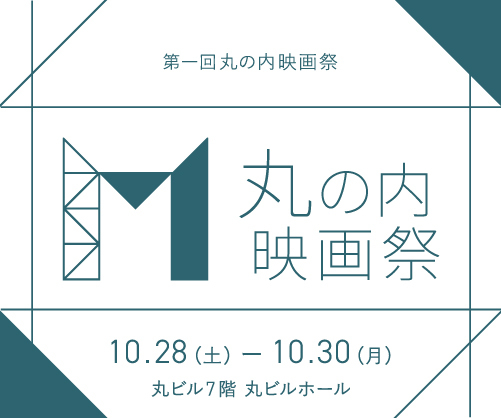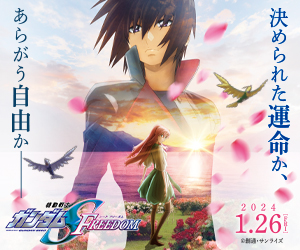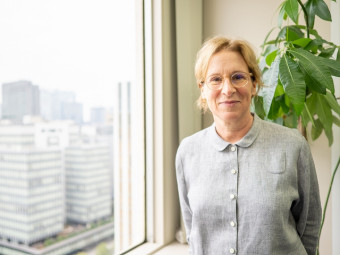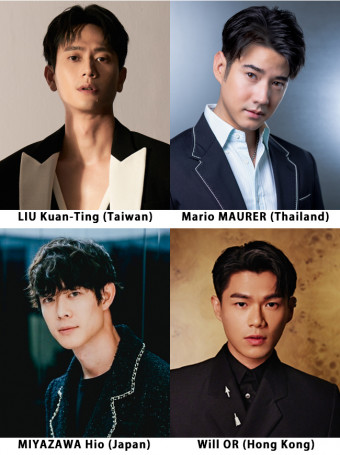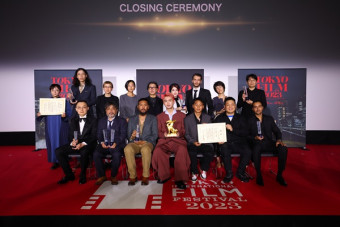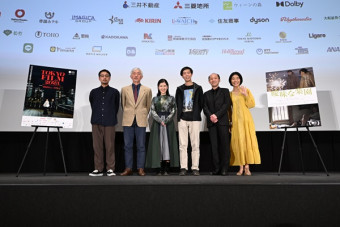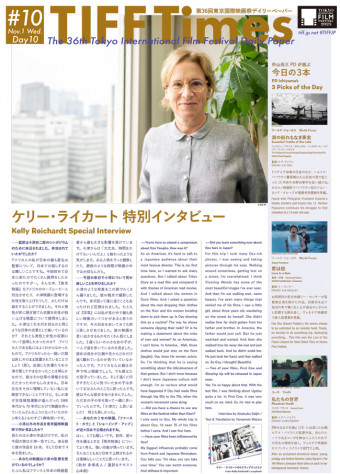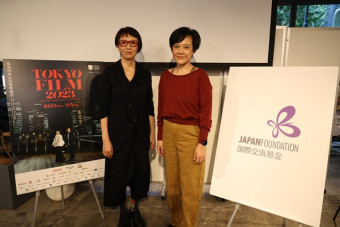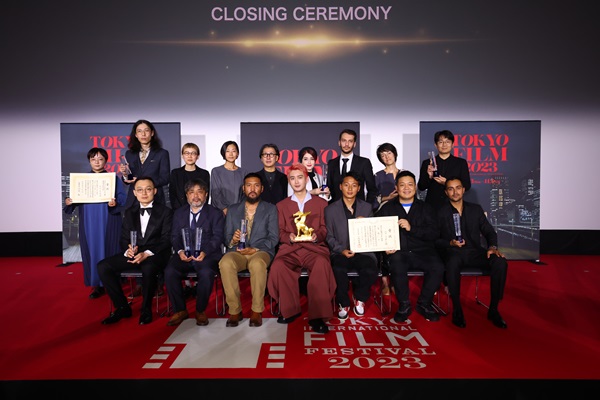
The 36th Tokyo International Film Festival (TIFF) concluded on November 1, following 10 days of screenings and events at the festival’s venues in the Hibiya-Marunouchi-Yurakucho-Ginza area. The festival screened 219 films, an increase over the 174 shown last year, with 74,841 admissions (more than double the 2022 admissions) and another 73,081 attending related events.
Among the many highlights of this year’s festival were a full-scale Red Carpet opening event, a celebration of the 120th anniversary of Ozu Yasujiro’s birth with an extensive retrospective and related events, enhanced collaboration with other countries/regions in Asia, and a six-fold increase in international filmmakers and guests.
During the Closing Ceremony at Toho Cinemas Hibiya, winners were announced for a range of awards, culminating in the Tokyo Grand Prix, The Governor of Tokyo Award, which comes with 3 million yen in prize money.
The ceremony began with a video of highlights from the festival, including footage and snapshots of indoor and outdoor stage appearances, Q&A sessions, master classes, symposia and TIFF Lounge sessions.
The first awards announced were for the Amazon Prime Video Take One Award for short films, now in its third year. The winner receives a 1 million yen cash prize as well as the opportunity to develop a project with Amazon Studios.
Jury member Ashizawa Akiko first announced an Amazon Prime Video Take One Award Special Jury Prize for Yasumura Emi for Be Prepared. Said the director, “I was only able to realize this film because of my actor, who suggested that we make it together. I would also like to thank all those who helped me complete the film.” Juror Toishi Noriko then announced that the Amazon Prime Video Take One Award would go to Yang Liping for Gone with the Wind. Said Yang, “This time, I had hardly any budget, but I shot the film in France and I’m very moved to be able to receive this award. I would like to thank the Tokyo International Film Festival and hope to be back.”
Juror Tamashiro Tina then read a message from Jury President Yukisada Isao. It said: “Today I’m in Korea to film my new work, and I apologize that I’m not able to attend. In my third year as jury president, we affirmed the goals of the award before our panel of jurors watched the films, looking for their both artistic and commercial value, and held deliberations. During our discussion, we narrowed down the candidates and reach a unanimous decision. For those filmmakers who did not receive a prize, we are looking forward to your next project.”
In the Asian Future section, jury member Takei Miyuki spoke about the selection process. “Our judging session began and we immediately came to a consensus,” she said, “because all the entries in this category were excellent. Although the films differed in touch and tone, each had its own charm, and while some films offered new insights, there were others that we enjoyed to our heart’s content. And, strange as it may seem, there were elements of overlap somewhere among these ten films. This is a testament to the fact that they represent a cross-section of the Asian world.
“On the other hand, the fact that all the films were attractive unfortunately meant that the subsequent jury meetings would be lengthy. How much easier it would have been if there had been 10 awards for 10 films. But we had to narrow it down to one. And we were fortunate enough to accomplish that after a peaceful debate without any bloody fistfights. The Asian Future section had a fresh lineup, with seven of the ten films being first features and three being second features.
“I would like to conclude our general comment by thanking these new filmmakers for making me feel that there is a future for emerging filmmakers to continue looking at film with new eyes in the midst of Asia’s—and the world’s—current state of great problems.”
Asian Future jury member Markus Nornes then said, “The screen has often been compared to a window as a metaphor for cinematic realism. Here is a film that presents constant views through, and reflections on, panes of glass, narrating a story where the details are obscured by design—and finally confirmed, but not explained away, by a single tear. The film is a clever homage to the likes of Hitchcock and Antonioni without being at all derivative or fawning. On the contrary, more than anything it expresses a love for all the mysteries of cinema and its histories.”
Nornes then announced that the Asian Future Best Film Award goes to the Iranian film Maria by first-time director Mahdi Asghari Azghadi.
The award was bestowed by jury member Raymond Red to actor Kamyab Geranmayeh and editor Elnaz Ebadollahi, accepting on behalf of the director.
Ebadollahi commented, “I have a comment from the director, who was disappointed that he was not able to come to Tokyo. He says, ‘To the Tokyo International Film Festival, the jury members and those who selected the film, I send my deepest gratitude. This award has given me the great power to continue making films. To my wife, who is also the editor, to my parents, to the main actors, I would like to take this opportunity to send gratitude. I also send thanks to my distributor and to director Amir Naderi.’”
TIFF Festival Navigator Ando Momoko came on stage to announce the winner of the coveted TIFF Audience Award, (Ab)normal Desire, noting “The audience award depends on those who watch, and that’s what film is all about. This means the film has found a place in their hearts.”
Japanese director Kishi Yoshiyuki was on hand to address the audience, and commented: “Film embeds itself inside audiences. This film talks about diversity, about sexual minorities. Films are not just about language, but I’m so glad that so many people understood the meaning of ‘diversity.’ I’m eager to share this honor with my actors.”
Juror Zhao Tao, announcing the Award for Best Artistic Contribution, commented: “This debut film is made by a young director and tells a story about people who were laid off from their jobs, and creates a special atmosphere with its superb cinematography and production design. The award goes to director Gao Peng for A Long Shot.
Gao was present, and commented: “I would like to extend my deepest gratitude to TIFF and to the jury members. I would like to capture this moment and send it to all the people who worked on the film, both cast and crew. All of them created the film with me and this honor should be shared with them. I want to send special thanks to the production designer. He strongly supported me throughout the film and we were able to make it through the process because of him. For a new director, that is indispensable. I would like to express thanks for the environment in China of supporting young directors. To be given such an award is not a dream, but a reality. The role of film, in a world where so many people are facing difficulties, is to connect people’s hearts and help promote peace. Thank you very much.”
Juror Tran Thi Bich Ngoc then announced the Best Actor Award, saying: “This award goes to a role that is both emotional and subtle. Through his genuine performance we had the opportunity to experience the rich life of today’s society in Iran.”
Best Actor Award winner Yasna Mirtahmasb (star of Iranian film Roxana) told the audience: “To all the jury members, thank you very much for choosing this film. I would like to send a message to the director, Parviz Shahbazi and to the producer, who is also sitting in the audience. There is no difference between Muslims, Christians and Jews. The worst thing in the world is war. No child should die because of war. Please stop the war. Thank you.”
Jury President Wim Wenders announced the Best Actress Award, noting, “This goes to an actress who also worked as the codirector of her film, Zar Amir of Tatami. She made her conflict, in the part of a judo coach caught between the demands of the government and an athlete, very realistic.”
Best Actress Award winner Zar Amir (star of Georgian-US film Tatami), speaking via video, said: “I’m very surprised and honored. I wish I could be there and celebrate it with you all. It’s about 2 o’clock in the morning, and I’m on break time. I just came back from shooting and got the news. It means a lot and it’s huge, it’s really something special to me. I was just thinking that being actress is not unlike being an athlete, with external and internal pressure, the sense of opportunity, the timing. The role of an Iranian coach, trapped between two loyalties, to her sport and to the government, trying to overcome fear and keeping some dignity, sounded from the beginning, in a way very familiar to me.
“This character, Maryam in Tatami is one of this kind. Losing something, but gaining freedom, and paying the highest price for it. I would like to say that without Arienne Mandi as a most extraordinary partner, it wouldn’t exist as it does, and my gratitude for her tremendous commitment is enormous. I’m again very honored to receive this award as the Best Actress. I want to dedicate this award to all the Iranian women, struggling against oppression on tatamis, on the streets of Iran or in the silence of the violent homes. Thank you so much.”
Juror Albert Serra then announced the Best Director Award, saying: “For portraying in a subtle, complex and sometimes disorienting way the difficulties of being a true individual in our world, controlled today by social media, the Best Director Award goes to Kishi Yoshiyuki for (Ab)normal Desire.”
Best Director Awardee Kishi Yoshiyuki commented, “Thank you very much to the Tokyo International Film Festival and the jury. This is my fourth film, and to receive such an award I would like to use the energy to do my best going forward. The world, including Japan, makes it very difficult to establish our own individuality these days. I hope that watching this film will give audiences the opportunity to think about the meaning of ‘diversity.’”
Juror Kunizane Mizue then announced a Special Jury Prize for Tatami, directed by Zar Amir and Guy Nattiv, commenting, “This thrilling story was acted by two women whose performances had our hands sweating and our eyes glued to the screen until the end of this black-and-white film.”
The TIFF Best Actress winner Zar Amir, appearing once again by video, told the audience: “The world is on fire. Iran is on fire, murdering its finest population. Palestine is on fire, mourning thousands of civilians. Israel is on fire with people being murdered. And everywhere we look we see innocent blood and injustice, staring helplessly at the chaos we created. But we made the film. And this film tells a story of the impossible unity between people who are raised to hate one another.
“We already knew with Guy, that working together as an Israeli and Iranian director united for the very first time against all odds would make history. But we didn’t know at the time that history would have [changed] that much when the movie would be out. If cinema has a single power, it may be the one of playing with the light in an age of darkness. We were told in Japan, the word judo means the gentle way. This is the way we want to follow, the only one that has a future. This movie, Tatami, has a Japanese name but tells about a universal issue, how we can be brave enough to work on hatred and show respect. Thank you for your gentle attention, dear jury and the Tokyo International Film Festival. Arigato.”
Her co-director, Guy Nattiv also addressed the audience via video. “Hi everyone, I’m Guy Nattiv, co-director of Tatami together with Zar Amir, and we want to thank you for this amazing surprise. We just landed in Los Angeles after the long flight from Tokyo. It was an amazing week to spend with you guys, to see the reactions and spend some time in beautiful Tokyo. Tatami is an homage to the Japanese tradition, to honoring your opponent, and it was the first collaboration between Israelis and Iranians. We did what our governments were trying to prevent us doing, to collaborate and become brothers and sisters.
“So thank you for acknowledging that and seeing the movie and understanding how important it is to us and for the world. We are living in a difficult situation. I hope this film is a light in the dark tunnel. Thank you again to the jury and people of Tokyo, Japan. We love you and can’t wait to come back with another movie next year with you. You are amazing. Thank you so much.”
After calling the jury members up to the stage, Jury President Wim Wenders then announced the winner of the Tokyo Grand Prix, The Governor of Tokyo Award. He said, “The jury gives the Tokyo Grand Prix unanimously to Snow Leopard, directed by Tibetan director Pema Tseden, who died this past May, much too early, at the age of 53. We salute his body of work and honor him for showing us a gorgeous landscape, very natural and humorous acting, and an amazing animal, even if some of its acting was created using special effects.”
Matsumoto Akiko, Deputy Director of the Tokyo Metropolitan Government Bureau of Industrial and Labor Affairs, bestowed the Kirin Trophy to three of the actors appearing in Snow Leopard, Jinpa, Xiong Ziqi and Tseten Tashi, and executive producer Zhou Hao.
She then delivered a congratulatory message on behalf of Koike Yuriko, Governor of Tokyo, saying: “I would like to welcome you all to the Tokyo International Film Festival. On behalf of the host city, Tokyo, I would like to thank you very much. I would like to extend my heartfelt congratulations to all those involved in Snow Leopard, the winner of the Tokyo Grand Prix, and to express my sincere condolences on the loss of director Pema Tseden. I would also like to extend my gratitude to President of the Jury Wim Wenders, chose Tokyo as the setting for his latest film, Perfect Days, and that Yakusho Koji won the Best Actor Award at this year’s Cannes International Film Festival.
“This year’s Competition section received 1,942 entries from 114 countries and regions. Every year, many new talents from Tokyo venture out into the world. Films move us, give us joy in life, enrich our hearts and deepen our connections to the world. This year, we have welcomed many guests from abroad and various exchanges have taken place. I hope that the appeal of films from Tokyo will lead to a diverse and wonderful world. We look forward to welcoming you again. I would like to conclude my speech by wishing that the Tokyo International Film Festival will continue to develop as a cultural festival that attracts people from all over the world. Thank you very much.”
Executive director Zhou Hao commented, “I would like to introduce you to the actors Jinpa, Xiong Ziqi and Tseten Tashi. Please allow me to represent the cast and crew to say a few words of appreciation. Thank you so much for choosing the Snow Leopard for this honor. Thank you to TIFF, to TIFF Chairman Ando Hiroyasu and to Jury President Wim Wenders. It was very unfortunate that Pema Tseden could not be here with us today, but I believe the award is something he bequeathed to us. Once again, thank you to all the crew who participated in making this film.
“I’m sure Mr. Pema Tseden’s son, also a director, will be very happy, and I’m sure he will carry his father’s spirit with him, going forward. He told me that his father, a pioneer of creating films in the Tibetan language, was also a novelist with a wide following. He always challenged a variety of styles in his films, from the beginning of his career. And Snow Leopard was also a completely different style, showing a beautiful landscape and telling a story about the importance of nature. Thank you to everyone. We would like to carry on Pema Tseden’s spirit and to continue making films.
His frequent actor Jinpa also remarked, “Thank you very much. I worked with Pema Tseden for many years, and I want to extend my deepest thanks to everyone.”
Xiong Ziqi said, “It was such an honor for me to be in this film, I’m very moved by this. I want to thank Pema Tseden for giving us this opportunity.”
Tseten Tashi, who played the “snow leopard monk” in the film, also added thanks and said, “I think Pema Tseden will always be with us.”
Wim Wenders then spoke for his fellow jurors as they concluded their duties. “It was an honor for me to serve as the president of the jury for the 36th Tokyo International Film Festival,” said Wenders, “together with these excellent film professionals. We watched 15 films from which we selected the winners. We felt we saw a number of great films, although not all of them were of the same stature. I was also pleased to present my film Perfect Days as the Opening Film. I love TIFF and I wish it all the success in the world for the future. Thank you.”
Once the jury had left the stage, the heart-pounding trailer for the 36th TIFF Closing Film, Godzilla Minus One, unfurled across Toho’s giant screen. Appearing on stage were the film’s director, Yamazaki Takashi, and stars Kamiki Ryunosuke and Hamabe Minami.
Kamiki, who was appearing at TIFF for the first time in 16 years, said, “I’m really honored that this was chosen as the Closing Film,” and extended thanks to the director and other members of the creative team. “To be able to be part of a Godzilla film and to have the leading role, I felt a lot of pressure. I’m proud to be part of it and I’m looking forward to the audience’s reactions to the film.”
Hamabe noted, “This is the first time I’ve participated in TIFF. I’m surprised that there’s so much energy here, and I really enjoyed appearing on the red carpet. I thought there might not be another Godzilla film, and I really wanted to be part of this when I found out that it was being made.”
Said Yamazaki, “Every year, there used to be a Godzilla film at the Tokyo International Film Festival, and I used to come and watch them, which made me very happy. But it’s been a long time since the last one. I’m elated that this film has been selected to close the festival. This is the first opportunity for the general public to see it. I want people to come back to the theater so they can really feel this film. We were all very serious about creating something special, and it’s an honor to be able to premiere the film at TIFF.”
TIFF Chairman Ando Hiroyasu then delivered closing comments. “We were blessed with warm, sunny weather for the past 10 days, and many people came to watch films,” he said. “We have initially calculated that some 50,000 tickets were sold, a 36 percent increase over last year. There were also 70,000 attendees for films and festival events, which is 25 percent more than the last year.
“I really appreciate that we had some 2,000 people coming from abroad. We are grateful for the audience and guests who came to the festival, as well as the many people supported the festival. I want to extend my heartfelt gratitude to them.
“I also want to mention our festival staff of over 100 personnel, who worked from morning to night so hard. I also want to thank our over 300 volunteers and interns working behind the scenes. I really appreciate all your hard effort. I can’t call all of them, but I’d like to ask some of the volunteers to join me on stage. Please join me in applauding them. I now declare the 36th Tokyo International Film Festival closed.”
While the audience was enjoying the Closing Film, journalists gathered for a Press Conference for Award Winners and Jury Members.
Members of the International Competition Jury were asked for comments first. Jury President Wim Wenders began by once again mentioning, “Our jury of four distinguished professionals had good talks together and came to a common conclusion about all six awards. It was a unanimous decision, and we’re happy about all the awards.”
Juror Albert Serra commented, “It went so fast. Everyone agreed, we made the best decisions, it was simple, obvious and fast, and that is what I like. It was so fast that we could become a [package jury], go around to all the festivals and make the decisions quickly.”
Joked Wenders, “You can hire us as a group.”
Serra also mentioned that when he first arrived, he’d been disappointed to hear that one of the directors was dead [Pema Tseden] and felt disinclined to consider his film. But after watching Snow Leopard, “I realized it was the best film and certainly deserving of the award.”
Juror Kunizane Mizue said, “As my fellow jurors have said, we had so much fun working together. We saw films from different countries, and I enjoyed watching these disparate perspectives on the world. Thank you to my fellow jurors and to the festival.”
Juror Tran Thi Bich Ngoc expressed gratitude to her fellow jury members, and said, “For me, it was a very rich cinema experience. I felt very sad during COVID when I couldn’t walk over to the cinema to watch films anymore. So spending this time with my fellow jury members and seeing films in the cinema was really a precious experience. I was worried that the deliberations may go on for many hours, but as has been said, we came to our decisions smoothly and quickly.”
Juror Zhao Tao reiterated the others’ gratitude to the panel, and commented, “I’m very excited that two films from China were honored with awards, which was a precious gift. It was also a wonderful gesture to express such an honor to Pema Tseden. I was very touched. A Long Shot by Gao Peng, his debut film, was able to fuse aspects of arthouse films and commercial films, which I think is a wonderful thing for a young director. I would like to congratulate him.”
Noting that all the awards were bestowed on Asian films, the jurors were asked about their perceptions of Asian film.
Wenders remarked, “Until you mentioned it, I wasn’t quite aware of this. It cannot be a coincidence. We felt that these were the most convincing films. And this speaks for the high standard of Asian films that were presented. We didn’t look at nationalities, we looked at the qualities of the films.” But he also added, “Tatami isn’t quite all Asian. It’s a combination from several parts of the world, with directors from Israel and Iran, and a production by America and Georgia. So it escapes clear classification.”
Said Tran, “As an Asian person, I’m truly happy to hear that most of the winners are Asian. But when we were working over the past seven days, I forgot the names of the directors or where the films came from. It’s about the films themselves, and their themes, rather than the country of origin.”
Kunizane concurred, “I also didn’t realize which film was from which country, nor that most of the winners were Asian. For me, it’s about choosing the most exciting or awe-inspiring film, and that film was Tatami. As for Snow Leopard, the leopard was so adorable that I thought I might dream about him in my sleep.”
Said Zhao, “I don’t think about which country a director or film is from. I think story comes first, and whether it touches or moves you, or makes you think. What’s most important is that the film is a good one.”
“Statistically, we only had two films from Europe and one from America,” noted Serra, “but there are good films everywhere. I don’t view films in terms of where they come from.”
Asked whether they’d chosen Tatami partially because of the nationalities of the film’s co-directors, Wenders responded, “We selected it because we were amazed by its storytelling, its acting and by the clear choice of its film language. For centuries, Palestinians and Jewish people lived together. I think the co-direction of an Israeli director and an Iranian proves that peace is doable and that the enemies of peace are those who exclude each other.”
Wenders was asked about AI and its impact on “the trajectory of cinema as it goes forward.” He responded, “I was a little amazed that none of the films we saw addressed that topic, since it seems to be such a dominant theme these days. I feel the fact that writers and actors are striking right now in America, and one of their key issues is the impact of AI on their professions, allows me to say that I totally support them. I feel that the use of AI infringes on their rights and we should do everything we can at the government level to protect ourselves against an onslaught of very negative forces.”
Before wrapping up, Wenders was asked about the experience of coming to TIFF. “As Albert mentioned, we want to travel as a group, so please spread the word that we can be hired as a jury elsewhere. We were quite in love with each other and respected each other. We wanted to continue, but sadly, the festival came to an end. I’m going to miss you guys.”
The jury members then hugged one another and made their goodbyes before the award winners entered the room to meet the press.
Editor Elnaz Ebadollahi, representing the Asian Future Best Film Award-winner Maria, was asked about the challenges faced by 28-year-old director Mahdi Asghari Azghadi when making the film. Ebadollahi commented, “The director will be happy to hear the good news that he’s won this award. There is a film within a film in Maria, which is in itself a challenge. We were also very careful not to misrepresent the Bharuch tribe who appear in the film. We put a great deal of thought into their costumes, dialogue and production design, and we also had an advisor.”
Maria actor Kamyab Geranmayeh extended his condolences to the Snow Leopard actors for the untimely passing of director Pema Tseden, and said he hoped it wouldn’t discourage them from going forward.
From Tokyo Grand Prix winner Snow Leopard, actors Jinpa, Xiong Ziqi and Tseten Tashi were first asked to comment about the film’s late director, who died shortly after the film was completed. “The director has left a legacy of wonderful films,” said frequent Pema Tseden collaborator Jinpa, “and we hope to follow in his footsteps and make great films in the future.”
Xiong noted that he met the director for the first time on Snow Leopard, and said, “He has become the most important figure for me. I would like to continue acting so as not to disappoint him.”
Tseten said, “I was not a professional actor when I first started working with Pema Tseden, so he had to teach me as we went along. He always told me not to hurry, take my time and do my best. Going forward, I will heed this advice with all my heart.”
Best Actor Award-winner Yasna Mirtahmasb, star of Iranian film Roxana, was asked whether it was true that he had worked without a script. He said, “I’ve been acting since the age of 13, and this is the first time I’ve received an award. I’m especially happy to win this at TIFF, since the festival has highlighted many Iranian films in the past—works by Abbas Kiarostami, Amir Naderi, Mohsen Makhmalbaf. I did have to work this time without reading a script, but the director was able to pull the performance out of me, and it was my best acting experience so far. It may be a catalyst for me to pursue a different path as an actor and to tell directors in the future that I don’t need to read a script.”
Chinese director Gao Peng of A Long Shot, which received the Award for Best Artistic Contribution, was asked about the impact of COVID on the film. He commented, “It caused problems for every filmmaker around the world, but it also led to some very interesting films, because many of them consider the psychological impact of the pandemic and how to live our lives in the future. We did halt pre-production as well as production during the pandemic, but we were able to hold rehearsals and have parties, and we all became friends. This helped to create an economical style of filmmaking, which was very good for the film.”
Asked about his future plans, Gao said, “I have a project that’s under way. In A Long Shot, I depicted the choices that an individual makes amid changing times in China, a rather common theme. In my next film, I want to depict a story that takes place 100 years ago. But I’m not sure, I may change my mind and do something else.”
Japanese director Kishi Yoshiyuki, who won both the Audience Award as well as the Best Director Award for his film (Ab)normal Desire, was asked about the similarities between his film and other films at the festival. “I’m very happy to have received the Best Director Award,” he commented, “especially considering all the wonderful films laden with heavy themes. It’s not just my award, I must share it with the original novelist, Asai Ryo, my cast and crew. I was happy to present it to an international audience, as well as the Japanese audience at TIFF. I agree, there are connecting themes between some of the films in the festival. As long as we’re able to deliver films from our own perspectives and the audience can absorb them, I’m happy.”
Asked how he felt about winning an award at TIFF, Gao Peng commented, “As the festival began, I commented that it was so uplifting just to be selected and nominated. Now that I’ve won, it gives me a great deal of confidence as I go forward. Also, I’m a huge fan of Pema Tseden, and it’s an enormous honor to win an award at the same festival.”
Asked how he felt about his Best Actor Award, Yasna Mirtahmasb (Roxana) noted, “Tokyo is so far away from Iran, that just being able to come here makes me very emotional. Having won an award is a wonderful gift to take home. I was most moved by how respectful the Japanese people are to each other. I want to tell this to my friends and family, it’s such a wonderful thing. I’ve always imagined what I would say if I ever won an award. I wish I had my parents here with me, but Mr. Ichiyama Shozo is here in their place, so I would like to express my appreciation to him.”
Ceremony
Closing Ceremony
Award winners & Jury Press Conference















